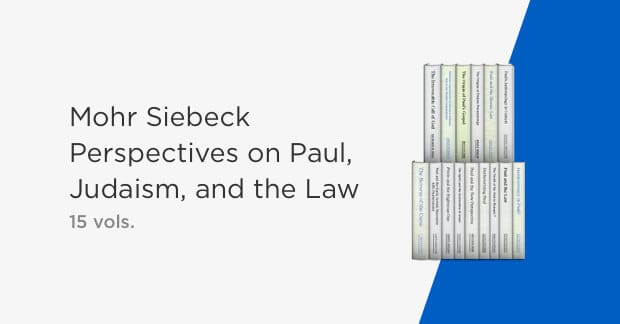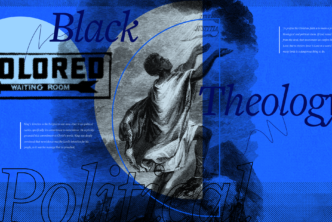Of course, there’s the well-known New Perspective on Paul, which deals with Paul’s theology of justification and the relationships between law, grace, and faith.
But did you know there are other debates about Paul’s theology in current scholarly literature?
In a collection coming soon to Logos—and discounted for a short time before it publishes—important Pauline scholars like James D.G. Dunn, Heikki Räisänen, and Seyoon Kim explore varied aspects of Paul’s life and theology in depth.
In addition to debates about Judaism and the Law, here are other debates the collection weighs in on:
1. Mission in the synagogue
The extent to which Jewish and Christian communities of the first century evidenced “proselytizing” tendencies has been hotly contested in recent research, with scholars tending either to outright deny or emphatically affirm the presence of “mission” in the synagogue or the church.
Through the historical and philological examination of Second Temple Jewish literature and the epistles of Paul in Mission-Commitment in Ancient Judaism and in the Pauline Communities, John P. Dickson offers a carefully nuanced picture of the shape and extent of mission-commitment in Judaism and early Christianity. Particularly significant is the author’s contention that the mission outlook of the apostle Paul—both in his self-conception and in his expectations of converts—was shaped decisively by his Jewish heritage.
2. The origin of Paul’s gospel message
In answer to Pauline scholarship that tends to explain the origin of Paul’s gospel message in Palestinian Judaism, Hellenistic Judaism, mystery cults, or Gnosticism, Seyoon Kim argues that the origin lies in Paul’s own testimony that he received the gospel from the revelation of Jesus Christ on the Damascus road. “Only when this insistence of Paul is taken seriously,” says Kim, “can we really understand Paul and his theology.”
Kim begins his investigation of Paul’s interpretation of the Damascus event by examining Paul’s rabbinic background. He then takes a more detailed look at just what occurred on the Damascus road and follows this with a discussion of Paul’s understanding of the gospel—its revelation, Christology, and soteriology—keeping in mind at all times how the message relates to the Damascus event.
3. Paul’s view of wisdom
In The Reverse of the Curse: Paul, Wisdom, and the Law, C. Marvin Pate demonstrates that wherever Paul employs the theme of wisdom, he does so to reverse the Deuteronomic curses and blessings. The covenantal blessings rest on those whose faith is in Christ—the wisdom of God—while the covenantal curses abide on those who attempt to obey the Torah. All of this results from the way Paul separates Christ—God’s wisdom—from the law of Moses.
The task of every interpreter is to read the Bible on its own terms. The Mohr Siebeck Perspectives on Paul, Judaism, and the Law (15 vols.) collection takes you deep into the trenches of contemporary Pauline scholarship, where exhaustive attention is given to the historical, literary, cultural, and autobiographical contexts of Paul’s writings. The monographs will help you arrive at a more accurate understanding of Paul’s inspired writings for your own studies and teaching.
***
Get the Mohr Siebeck Perspectives on Paul, Judaism, and the Law (15 vols.) collection.





